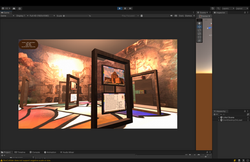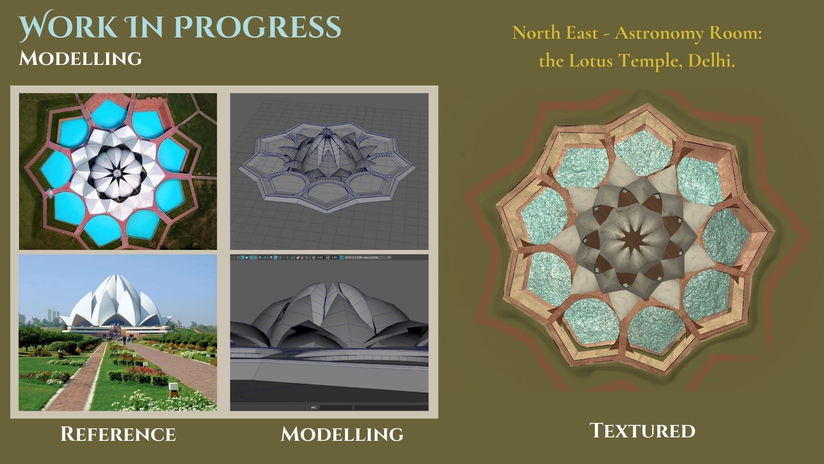


PAST PERSPECTIVES
Virtual Exploration of Historic Architectures
Guided by Vastu Shastra
Master's Thesis
Aug 2024
This project focuses on creating a virtual space for exploring architecture, not just as structures but as integral parts of history. It aims to highlight the ancient sciences with which these historical structures were built on, encouraging a deeper understanding rather than dismissing them as buildings of the past or myths. The project offers an opportunity to appreciate the architectural science of ancient India and Southeast Asian countries by exploring these monuments as if they were in a museum.
Additionally, it seeks to preserve these architectures in a digital format. I have recreated nine monuments, aligning them with Vastu Shastra (the science of architecture and related fields) allowing users to explore these monuments as if they are actually visiting the sites. Gamification elements have also been incorporated into the project to enhance the experience. The objective of this project is to help people recognise that ancient sciences continue to resonate in the modern world, as these architectural marvels withstand the test of time
By understanding and appreciating the essence of Vastu Sastra, we can better understand the foundations of the world we live in today.
About:


Modelling
Nine architectural environments were selected to highlight directional Vastu elements, drawing from the architectural histories of India and Indonesia. To ensure accuracy, references were gathered, regional variations studied, and multiple sources consulted before finalizing placements. While general spaces like the traditional kitchen and Agraharam house were adapted from existing designs, others followed architectural plans and Google Street View research. Every model was created from scratch using Maya, with intricate sculptures crafted in Nomad Sculpt and integrated via depth maps.

Lotus Temple, New Delhi

Konark Temple, Odissa

Borobudur, Indonesia

Badami Caves, KArnataka

Rani Ki Vav, Gujarat

Hawa Mahal, Jaipur

GAmification
The game allows players to explore nine distinct architectural environments based on Vastu principles. Portals enable seamless travel between monuments and the central space, enhancing accessibility while preserving immersion. Some portals appear as doors within the Agraharam house, subtly transporting players to different locations. Each environment features unique terrain and skyboxes, enriching the sense of exploration.
To gamify the experience, players collect information to complete personalized postcards. Each postcard has a front side with Vastu-related insights and space for personal notes, while the back side displays a player-captured photo of the monument. Collecting all information rewards players with a stamp, marking their progress. The completed postcards are later displayed in a 3D gallery, reinforcing the game’s narrative of discovery and learning.
Gallery
 |  |  |  |
|---|---|---|---|
 |  |  |  |
 |


















